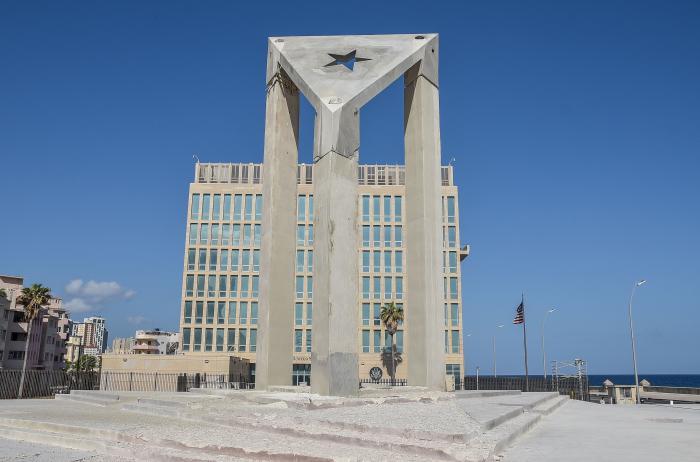
Sixty years after the proclamation that formalized the criminal U.S. economic blockade against Cuba
The Revolutionary Government denounces the more than 60 years of the economic, commercial and financial blockade formally imposed by the US on February 3, 1962. On that date, then President John F. Kennedy issued Proclamation 3447, which decreed a total "embargo" on trade with our country under section 620 (a) of the Foreign Assistance Act. This gave official status to the aggressive and unilateral economic actions that had been applied against Cuba since the revolutionary triumph.
From then on, the policy of encirclement and economic asphyxiation was consolidated as the central axis of the strategy aimed at restricting the legitimate right of Cubans to defend their sovereignty and forge an emancipatory project, alien to imperialist domination.
The main justification used by the U.S. at the time to apply this measure was Cuba's relationship with socialist countries, which supposedly went against "the principles of the inter-American system" and against U.S. and hemispheric security. Over time, the pretexts have varied, but the purposes have been the same.
The most exact definition of the real objectives of the policy towards Cuba had already been stated in the memorandum of the Under Secretary of State, Lester D. Mallory, dated April 6, 1960: "to provoke disillusionment and discouragement through economic dissatisfaction and hardship (...) to weaken economic life by denying Cuba money and supplies in order to reduce nominal and real wages, to cause hunger, despair and the overthrow of the government".
The blockade has evolved into the most complex, prolonged and inhumane act of economic warfare committed against any nation. Its effects have limited the possibilities of economic development, as it is designed to prevent trade relations with third countries, to hinder banking and financial operations as much as possible, to curb foreign investment and to cut off all sources of income.
It is an essentially extraterritorial policy, in violation of International Law, which seeks, through pressure, blackmail and penalties, to isolate Cuba and punish those who establish any economic, commercial and financial link with the country. It is the practical expression of the Monroe Doctrine in the 21st century, which looks at Latin America and the Caribbean from the position of owner, whether it be "backyard or front yard".
The blockade has never had the slightest hint of legitimacy or moral justification.
It constitutes a massive, flagrant and systematic violation of the human rights of all Cubans. It qualifies as an act of genocide under the 1948 Convention on the Prevention and Punishment of the Crime of Genocide.
To justify it, the US government feels obliged to use lies and to hide its criminal effect it promotes a campaign financed from Washington, aimed at sowing the idea that the effects of the blockade are not real, that they do not really harm the Cuban economy, that they are not a significant problem for our development and our economic stability. It is a falsehood that is spread through the powerful media at the service of imperialism and the digital networks designed to influence the thinking of many, even of some compatriots.
The accumulated damages in these six decades exceed 144 thousand 413.4 million dollars at current prices.
Since 2019, economic coercion measures reach a qualitatively higher aggressiveness. Unconventional warfare measures, unbefitting of peacetime, are applied in an effort to deprive Cuba of fuel supplies.
In the context of the COVID-19 confrontation, the reinforcement of the blockade reaches unsuspected limits of cruelty by hindering solidarity donations, trying to hinder the development of Cuban vaccines and limiting the possibilities of access to medicines and basic supplies. During the pandemic, and throughout these 60 years, the blockade has had an incalculable human cost and several generations have felt it in their own flesh.
The strengths of the Cuban socialist system and the unity of the people have made it possible, in spite of the blockade, to avoid the economic and social collapse it seeks, to achieve outstanding human development, according to the indices recognized by the United Nations, to guarantee unquestionable progress in social justice and to generate a gradual transformation of the economic and productive structure in search of sustainable development. One wonders how many small and underdeveloped economies could have survived an aggression of such proportions.
This policy of economic encirclement is met with practically unanimous and universal rejection. In addition to the overwhelming support for the resolution passed each year by the United Nations General Assembly, there are constant demands and actions of denunciation by individuals, organizations and institutions around the world, including within the United States.
Since 1959, thirteen presidents have occupied the White House. With certain nuances, in all cases there has been a permanent commitment to provoke economic collapse and the unsustainability of the revolutionary project through the strict application of the blockade. It would seem that 60 years have not been enough to understand that it has not fulfilled, nor will it fulfill, the objectives of its promoters.
The Revolutionary Government, in the name of the Cuban people, emphatically and energetically demands, once again, the end of the economic, commercial and financial blockade imposed by the U.S. Our denunciation will remain firm and invariable until this inhuman and illegal policy ceases in its entirety.
Havana, February 3, 2022